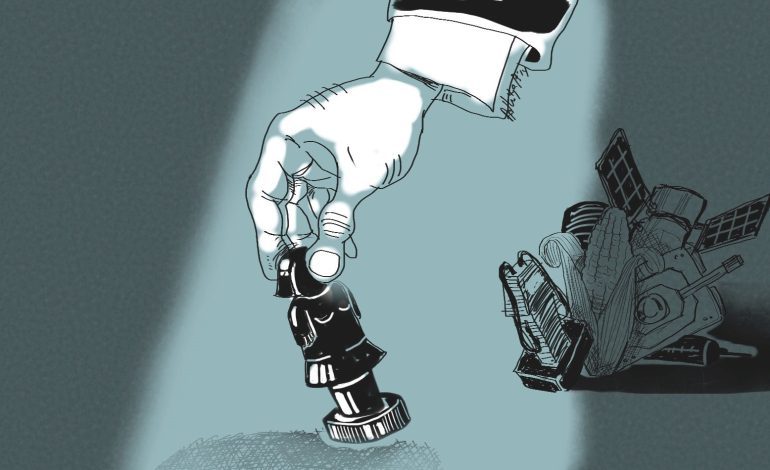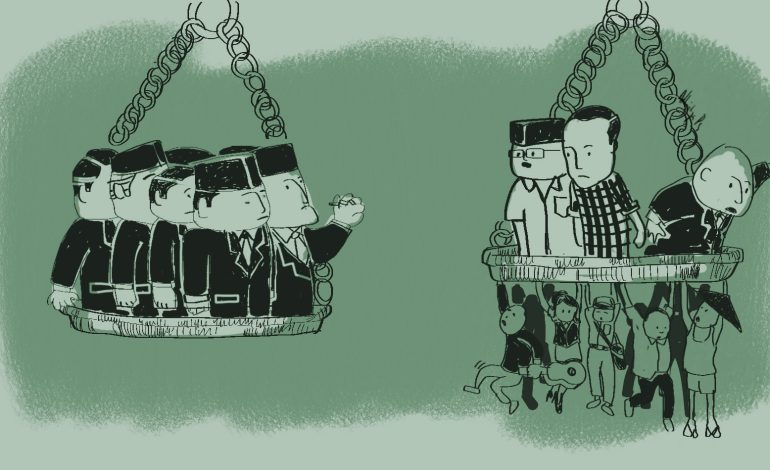Women’s Issues an Afterthought in This Election

Back in 2002, then President Megawati Soekarnoputri irked many women activists for undermining their efforts to put in place an affirmative action policy in Parliament.
She blasted the idea to push for the 30 percent quota for female legislative candidates in the election, calling the proposal “counterproductive” and “degrading to women’s dignity”.
Megawati at the time called on women to stop seeking ‘pseudo-advancement’ and avoid seeking roles or gains by struggling for a quota or allotment of high positions.
She forgot that it’s not a level-playing field out there. To quote economist and sociologist, the awesome Mayling Oey-Gardiner, successful women always think that if they can do it, anybody else can follow suit.
“They forgot that they have privilege, whatever that is,” she said.
In Megawati’s case, the privilege is her last name, being the eldest daughter of founding father Soekarno.
Fast-forward to now, the 30 percent female candidates quota system is in place, but it is still rife with many issues as it has yet to boost the quantity and quality of women legislators.
As for Ms. Megawati, she continued to be a liability. First, by stating that presidential candidate from her Indonesian Democratic Party of Struggle (PDI-P) Joko Widodo, as “only a party official abiding by PDI-P” – which did no favor in putting to rest the snarky rumor that Jokowi would be “puppet president.”
Second, by putting at the forefront of the party’s election campaign activities her daughter Puan Maharani, whose political and professional track records are severely lacking, further affirming criticism of her effort to keep PDI-P a family party.
Thankfully, though, the last few years have seen the party giving more rooms for growth to some credible female cadres such as Eva Kusuma Sundari and Rieke Dyah Pitaloka that may contribute to its programs on women’s issues in its presidential candidate’s vision and mission.
Inside the 42-page statement that Jokowi and running mate Jusuf Kalla submitted to the General Elections Committee, there are seven priorities in regards to its commitment to empower women.
These priorities aim to address discrimination against women; ensure gender equality; refine the implementation of the 30-percent female legislative candidates quota through better recruitment and education; improve access to health services; provide better and gender-friendly education system; and protect women against violence, including domestic workers in the country and overseas.
Activists praised these commitments for placing women as the subject with sovereignty in terms of politics, with dignity, freedom and on equal footing with men.
Rival Prabowo Subianto and running mate Hatta Rajasa have also addressed women’s issue in their vision and mission document. However, it is included in the part about their commitment to improve the quality of social development through health, social, religion, culture and sports.
Their programs on women are specifically related to protecting women, children and other vulnerable groups from violence and crime; eradicating human trafficking; upgrading the status of the State Ministry for Women Empowerment and Child Protection into a ministry with better authority; and improving the role of Family Welfare Movement (PKK), health post (Posyandu) and community health center, as well as developing family planning program.
Apart from the lack of details on women issues, activists criticized these commitments for putting women as objects and a vulnerable group that needs protection. This should not come as a surprise given the testosterone-charged and machismo-laden image in the former military general’s camp.
Women activist Ita Fatia Nadia and migrant worker activist Anis Hidayah also said the plan to revive PKK and Posyandu will return women’s role to domestic realm. PKK, a community family welfare organization run by housewives, is a product of the New Order regime, and have been criticized for merely framing women as wife and mother.
However, Titi Anggraini, executive director of the Association for Elections and Democracy (Perludem), argued that the role of PKK could be monumental as it could mobilize millions of women to campaign for health and welfare.
“It depends on what you would make PKK do. Is it going to be heavy on the domestic side? Or it can become a venue for discussion, self-actualization and women’s empowerment. That’s the homework for the next government,” said Titi.
“In terms of structure and personnel, it’s huge and very potential, as long as it’s not politicized like during the New Order,” she said.
Titi observed that during this election, women’s issues only serve as an afterthought, not a priority of both camps, although they are a prime target to grab votes.
She said both camps have been working really hard to win female voters by intensely approaching women’s groups that are based on religion, women’s rights movement and party affiliations. Different groups of women activists in several regions have indeed publicly thrown their supports beyond both candidates.
“The public is not really aware about this effort because the media never picked this up. The media is only interested in gossips, disputes, black campaigns, rivalries and things like that,” Titi said.
It may be difficult to lay out women’s issues in such short documents of vision and mission, Titi said, but these issues are barely raised in public, during the campaign, and in presidential debates.
“The candidates mainly focus on economy or education, but never on women’s issues, although the issues of welfare, education, security… all of them have women aspects,” she said.
“In conclusion, women’s issues are not the main pressure in this election. It’s not the main course, only some garnish to make the meal looks good,” she said.
Follow @heradiani on Twitter






















